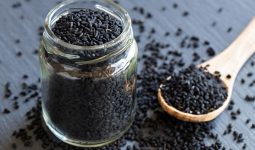Manganese is an important nutrient in the body with important functions. Although it is a trace mineral, (meaning that it is needed in little quantity), its absence from the body can cause health problems.
Manganese is an essential mineral. This means your body can’t make it, therefore, you have to get it from your diet. Your body requires manganese for proper functioning.
This mineral is even used as a medicine. It is taken orally to treat manganese deficiency. However, you can increase your intake of manganese-rich foods to prevent deficiencies.
Manganese is also applied topically to heal wounds. It can be given intravenously to treat manganese deficiency. It is also added as a trace element in TPN (total parenteral nutrition).
This is a preparation that is given intravenously.
Functions of Manganese in the Body
Manganese plays a lot of important roles in the body. It takes part in a lot of biochemical processes in the body. It is used by the body to make cholesterol, proteins, and carbohydrates.
It is even involved in the formation of bones. It makes your metabolism better by acting as a co-enzyme in most metabolic activities. It is a component of the enzyme manganese superoxide dismutase.
Manganese is also a powerful antioxidant. It scavenges free radicals from the body and neutralizes them. These prevent the dangers caused by these damaging particles such as DNA damage, mutation, and cancers.
Manganese promotes the proper functioning of your thyroid gland. It aids the absorption of calcium, it is used in making connective tissues, and also sex hormones.
This important essential mineral helps in the regulation of blood sugar. It also promotes proper metabolism of carbohydrates and fats.
The human body contains at most 20 milligrams of manganese. Most of this mineral is stored in your bones, liver, pancreas, and kidneys. Your brain depends on manganese for normal functioning.
Your central nervous system needs manganese for proper functions. Though it is needed in trace amounts, it is needed by every form of life.
Science-Backed Health Benefits of Manganese
Manganese promotes overall health and wellness. It does this in a lot of ways. Below are some of the common ways manganese improves your health.
It reduces the risks of diseases
Manganese acts as a powerful antioxidant and this helps to reduce your risks of diseases. It is part of the powerful antioxidant superoxide dismutase (SOD).
Antioxidants protect you from the dangers of free radicals. These molecules can cause cell damage and mutations in the body. Free radicals cause aging and chronic diseases.
It promotes bone health
Manganese gives you strong and healthy bones. It increases the mineral density of your spinal cord. Post-menopausal women would benefit from this mostly.
Most women suffer from a deficiency in manganese after going through menopause. Eating foods rich in manganese would help to prevent bone fractures in these women.
It can prevent osteoporosis.
It regulates blood sugar
Manganese plays an important role in the regulation of blood sugar. A deficiency in manganese has been linked to glucose intolerance. This condition is similar to diabetes.
Even studies have shown that people with diabetes have low levels of manganese. Manganese is found abundantly in the pancreas where it takes part in the production of insulin.
This means manganese takes part in the secretion of insulin and the control of blood sugar. So a deficiency in this vital mineral would affect this process.
It improves digestion
This promotes the healthy functions of your digestive tracts. It aids the absorption of fat and prevents bowel discomfort and constipation. This important mineral promotes the utilization of foods in the digestive tract and it helps your body transform food into usable energy.
It reduces epileptic seizures
Manganese reduces the incidences of epileptic seizures. The leady cause of epilepsy in adults is stroke. This condition reduces the flow of blood to your brain.
However, manganese prevents this condition because it is a vasodilator. It helps in enlarging the blood vessels, this aids the smooth movement of blood to the brain and other important organs of the body.
This will reduce your risks of stroke and epilepsy. Even studies have linked seizures to lower levels of manganese. Adequate levels of manganese will increase your flow of blood and reduce your risks for chronic diseases.
It relieves the symptoms of diabetes
This important nutrient controls metabolic diseases like diabetes. Regular intake of manganese-rich foods can even prevent diabetes. Manganese controls the levels of sugar in the blood by normalizing the production and secretion of insulin.
It promotes the healing of wounds
Manganese and other trace minerals are needed in the healing of wounds because they play a great role in the synthesis of collagen. Increased production of collagen helps in the healing of wounds.
Manganese helps in producing proline, an amino acid that is needed for the production of collagen. This aids the processes of wound healing in humans.
Studies have shown that applying manganese, zinc, and calcium to chronic wounds for at least 12 weeks would help hasten healing.
It boosts cognitive functions
Manganese promotes a healthy brain and boosts its functions. It prevents and treats certain nervous disorders. This medicinal property of manganese is due to the presence of the enzyme superoxide dismutase (SOD).
This enzyme expels free radicals from the body. These negative molecules cause harm to your brain and also other parts of your body. This powerful antioxidant prevents it.
Manganese also works together with neurotransmitters. This leads to a faster and more efficient transfer of electrical impulses in the body. This helps to speed up cognitive functions.
It boosts metabolism
One of the main functions of manganese is to regulate the metabolism of the body. It activates enzymes that take part in the metabolism of amino acids, cholesterol, and even glucose (carbohydrates).
It is also needed for the metabolism of vitamins B1 and E. manganese helps the functions of the liver. It enables it to do its work smoothly.
It also plays a critical role in the metabolism of glutamine, one of the most abundant amino acids in the body. Glutamine forms a key part of the enzyme, DNA polymerase.
Prevents nutritional deficiencies
Manganese promotes the absorption of vitamins thereby preventing nutritional deficiencies, one of the leading causes of diseases and deaths.
As a co-factor for enzymatic reactions, it promotes the absorption of vitamin B and E. it also promotes the absorption of important minerals like magnesium.
This happens because manganese plays important roles in enzymatic reactions need to absorb and utilize vitamins in foods.
It reduces inflammation
Manganese relieves sprains and inflammation. It also increases the levels of superoxide dismutase (SOD) in the body. This antioxidant fights inflammation.
People with arthritis are deficient in SOD. This antioxidant has anti-inflammatory properties that are of great benefit to people suffering from arthritis.
Increasing your intake of manganese-rich foods will increase your levels of SOD and relieve the symptoms of arthritis.
It improves the health of your thyroid
As a co-factor for many enzymes, manganese is involved in a lot of biochemical processes in the body. It is an important part of thyroxine, a hormone that controls metabolism in the body.
It is produced and stored in the thyroid gland. Manganese improves your thyroid gland and this ensures that thyroid hormones are synthesized.
These hormones play a great deal in controlling weight, body temperature, appetite, organ system efficiency, and overall metabolism.
It promotes a healthy menstrual cycle
Many women suffer from menstrual problems, including mood swings, depression, headaches, and irritability. Manganese can help to relieve these symptoms to a great extent.
A lot of studies have linked the deficiencies of trace minerals to menstrual problems. This includes manganese. Women who suffer from severe menstrual cramps and severe PMS symptoms will benefit from manganese.
This nutrient balances the levels of hormones and regulates their functions.
It prevents osteoporosis
Manganese prevents and relieves the symptoms of bone problems such as osteoarthritis and osteoporosis. Your bone will lose its density when you are lacking in manganese.
Increase your intake of manganese-rich foods if you want healthy bones.
Symptoms of Manganese Deficiency
It is quite difficult to diagnose manganese deficiency and a lot of people are suffering from these. More than 35% of the world population is deficient in this vital mineral.
Poor nutrition and bad dietary habits lead to manganese deficiency. Healthy nutrition and high intake of whole plant foods will prevent this deficiency and the unwanted symptoms it causes.
Some common signs and symptoms of manganese deficiency are:
- High blood pressure
- Heart disease and ailments
- Malformations of the bones
- Muscular contractions
- Poor vision
- High levels of cholesterol
- Hearing problems
- Tremors
- Shivers
- Severe memory problems
- Fast heartbeats
- Eye problems
- Weaknesses and sweating
- Severe cramps
Severe cases of manganese deficiency can lead to:
- Infertility in women
- Heart problems
- Osteoporosis
- Pancreatic damage
Sources of Manganese
This important mineral is found abundantly in:
- Green leafy vegetables: Green veggies are rich in manganese. You can find this important mineral in spinach, watercress, leek, lettuce, mustard greens. You can also find manganese in carrots, tofu, green beans, and beetroots.
- Nuts: This includes walnuts, almonds, pecans, and hazelnuts.
- Seafood: This includes oysters, salmon, mussels, and clams.
- Fruits: This includes a variety of fruits like figs, coconuts, kiwis, cucumbers, bananas, pineapples, blackberries, grapes, tropical fruits, raspberries, and many more.
- Herbs and spices: This includes ginger, turmeric, garlic, cloves, and peppermint.
- Grains: This includes rice, whole wheat, brown rice, and whole wheat.
This also includes seeds, legumes, whole grains, and herbal teas.
The Best Sources of Manganese
The best way to get your manganese is through diet because there is a low risk of toxicity. You must know that manganese is one of the three toxic minerals in the human body.
This means it is required in your body in little amounts. Excess of it will be dangerous. However, you can’t get excess manganese through diet. You are at risk of toxicity if you take manganese supplements.
Don’t take manganese supplements for a long period and follow the prescription. Manganese toxicity can lead to a lot of health complications, some of them are fatal.
People with liver conditions should be careful of manganese supplements. The liver will have difficulty handling the supplement since it is synthetic.
This can lead to terror, spasms, mental disorders, and even psychosis. People with anemia should be careful of manganese supplements too because their bodies absorb more manganese.
People who weld may take in excess manganese by inhaling it. This poses a great health risk. This happens because the manganese can bypass the normal defense mechanism of the body.
Excess amounts of manganese in the body can accumulate and damage the lungs, central nervous system, kidneys, and liver. Prolonged exposure to manganese can produce symptoms that look like those of Parkinson’s disease.
This includes slow movement, tremors, poor balance, (manganism), and rigid muscles.
How to Diagnose Manganese Deficiency?
A simple blood test can be used to know the levels of manganese in your body. A blood sample would be taken from your vein to carry out this test.
If you are deficient in manganese, you would be given supplements. However, this should be taken for a short time and then you eat more whole plant-based foods.
Men need 2.3 mg of manganese daily while women need 1.8 mg of manganese daily.
Dosage of Manganese
Wen taking manganese supplements, it is highly important that you stick to the prescription to avoid toxicity-related problems. Although there is no Recommended Dietary Allowance (RDA) for manganese, there is an Adequate Intake (AI) of 1.8 to 2.3 mg daily.
The AI for individuals depends on age. There is a Tolerable Upper Intake Level (UL) for adults of 19 years old and above. The UL is 11 mg daily.
Disease Condition Where Manganese is Deficient
There are some diseases in which the levels of manganese are low in the body. The Institute of Medicine, however, has not reported manganese deficiency in healthy people.
People with the following medical conditions have very low levels of manganese in their bodies.
- People who are on hemodialysis
- Epilepsy patients
- Diabetes patients
- People with osteoporosis
- Children with Perthes disease. (This is a rare medical condition in which the flow of blood to the thigh is disrupted).
- Children with phenylketonuria. This is a genetic disorder of the blood in which the levels of phenylalanine are elevated.
Sources;
- Major osteoporotic fragility fractures: Risk factor updates and societal impact NCBI ,NCBI ,NCBI
- Spinal bone loss in postmenopausal women supplemented with calcium and trace minerals. NCBI
- Welding and Manganese CDC
- State-of-the-science review: Does manganese exposure during welding pose a neurological risk? NCBI
- Manganese absorption and retention by young women is associated with serum ferritin concentration. NCBI
- Manganese NCBI
- [Treatment of chronic wounds with an alginate dressing containing calcium zinc and manganese] NCBI
- EFFECTS OF MANGANESE ON THYROID HORMONE HOMEOSTASIS NCBI
- Manganese action in brain function. NCBI
- Dietary calcium and manganese effects on menstrual cycle symptoms NCBI ,SL
- Manganese metabolism in humans. NCBI
- Manganese and epilepsy: a systematic review of the literature NCBI ,NCBI ,NCBI
- Manganese supplementation protects against diet-induced diabetes in wild type mice by enhancing insulin secretion. NCBI ,NCBI ,NCBI
- Therapeutic potential of superoxide dismutase (SOD) for the resolution of inflammation. NCBI ,NCBI ,NCBI ,NCBI ,NCBI








